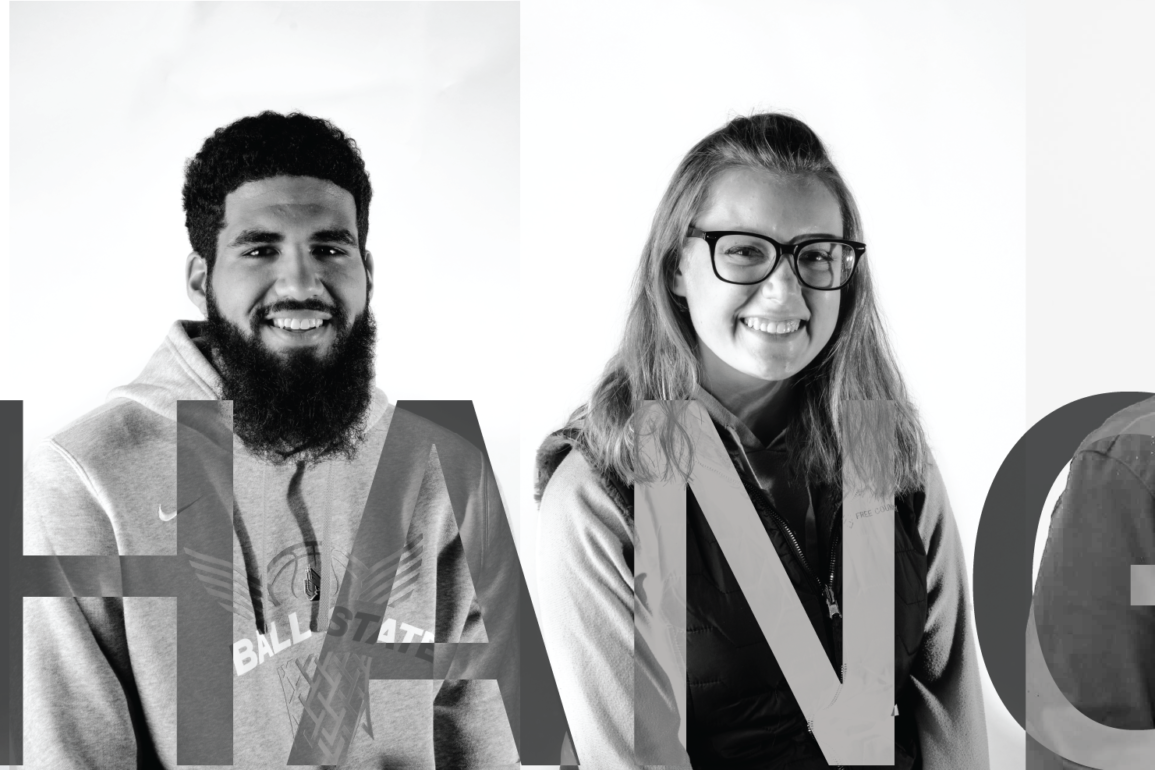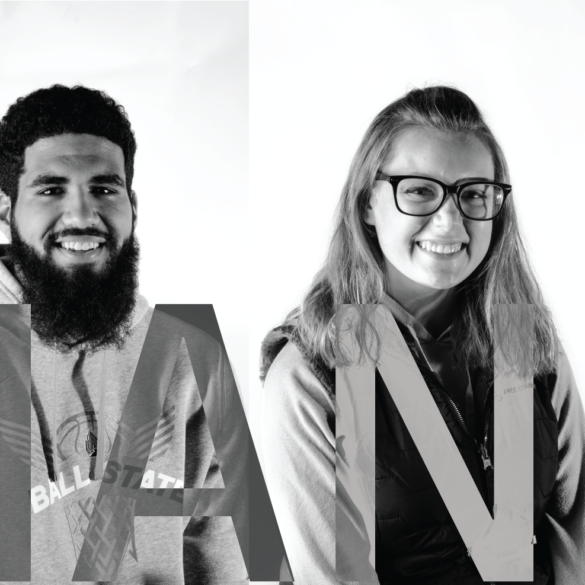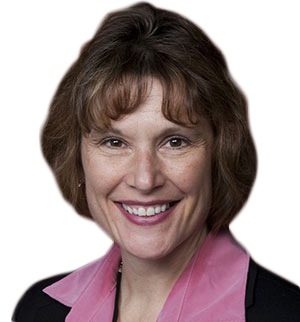Members of the Ball State community share their life-altering stories.
Life is not an endlessly paved road without twists and turns. It is paved in some places, rocky in others, and often changes course without warning signs. People grow, people learn, and people change. Every experience, from discovering a passion for dance to finding that a close friend has died, can have the potential to influence someone forever.
Life-changing stories can be difficult to share. Not all stories have happy endings, but most have valuable lessons. Below, four members of the Ball State University community describe their experiences by answering one question: “What moment has changed your life forever?”
Editor’s Note: This story does contain some strong language.
Courtney Shub is a freshman theatre creations and psychology major at Ball State.
I’ve been a performer my whole life. When I was in high school, I decided to audition for a theme park called Six Flags Great America. My mom saw an advertisement for the auditions and told me, “Hey! You’re 16 now. Why don’t you give it a try?” I went into the audition not really expecting anything, but it was the best day of my life.
We had to learn two different dance combinations and perform them for the staff. I was smiling from ear-to-ear the whole time. We were in the theatre that I’ve known forever, and just to be auditioning on that stage was such a dream come true.
I remember the phone call about getting the job. I actually missed the call, then got so excited that I accidentally deleted the voicemail message before I could write down the extension number I needed. I looked all over the website until I found it, but when I called back, it went to voicemail. After 45 minutes of freaking out, I finally got the the call saying, “We’d like to offer you the position.”
I am mainly a dancer. Throughout my three summers at the theme park, I’ve performed in a variety of shows. For example, I do this drumming and dancing show in front of one of the rides. I do anywhere between five and eight shows a day of varying styles. This year in our indoor theatre, I was in a magic show with some dancing.
This experience has changed me so much as a person. I get to interact with the guests at the park every day. I found some of the greatest people I’ve ever met through this job. They’re the people I keep in contact with way more than the people I’ve gone to school with.
I definitely think performing has given me a lot of optimism in my life. I feel like I have my own personal “chase your dreams” story. The job doesn’t feel like work at all, and it’s weird to think about ever having a job that does. During the school year, it pushes me to keep going. It gives me hope that there are good things in the world that can come to people if they work hard for it.
No matter how crazy your dreams are, chase them anyway. You never know when you might luck out. A lot of performing is being in the right place at the right time, and that’s definitely what happened for me. Putting yourself out there and taking a risk can pay off sometimes.
Andy Och is a sophomore secondary education math major at Ball State. Editor’s Note: Andy couldn’t be pictured due to policies at his job.
My mom has always had mental disorders. She is diagnosed with obsessive-compulsive disorder (OCD), which a lot of people don’t know is actually a personality disorder. She has always had issues because of that, but it really didn’t catch on until I was 12 years old, and she had her third child, Tommy. He was a ruffian. He did a lot of things as a baby and made a lot of messes, and as someone with OCD, my mom wanted everything to be clean.
From that point on, and still today, my mom stopped being my mom.
She later had another child—there are now four kids under the Och name—and all four of us lived in the same household. She started not being a hands-on mother with any of us, and eventually, my dad and I took over all of the chores. I was between 11 and 13 at this time, so it was hard to raise and take care of three younger kids.
My grades started dropping. My siblings and I were all homeschooled at that point, and I really wasn’t where I needed to be educationally. So my dad put all of us in a private school named St. Matthews, and that helped with our learning.
With my mom, though, the damage that happened to her was done. Her mind was set.
My sister Emily, who’s 14 now, was the defiant one. Her and my mom kept stepping on each other’s feet. When Emily was about 10 years old, my mom started getting really upset with her, and it would occasionally end in a physical fight. There was a time or two when my mom would jump on my sister, attack her, and beat her.
There was a microwave in my room. My mom has taken my sister’s head, put it inside, and slammed the door on her head 10 times in a row.
When I was 17 and Emily was 11, my dad hadn’t been home in about three weeks. He wouldn’t come home except for an hour every three or so days because my mom was hostile and aggressive whenever he was around. You could see the aggression in her eyes, so my dad started spending the night at other people’s houses, working from there instead.
This was an ongoing issue with my parents. They never got along, even before they got married. They’ve always had issues. During the two or three years leading up to this, I had really bad depression. I never got diagnosed, but I felt down during the winter, and there were a few times when I considered taking bad actions because I was just tired of it. But my dad was my best friend—my only friend—and so I knew I couldn’t leave him by himself.
My dad talked about planning to get a house for him, my sister, and I, and then eventually the two younger ones. He was going to start the divorce process once that situation started. He had the house picked out but wasn’t fully prepared to move in. Then, on the Sunday after Thanksgiving break of my junior year, my little sister was returning from our grandmother’s house. I was at home and feeling pretty down—I just didn’t feel like dealing with anything. When my dad called to say that he was bringing Emily home, my mom said, “Don’t you dare. I don’t want to deal with her. I’m not in the mood.”
My mom would go on tangents some days, when she would spend up to four hours in the bathroom bathing. She wouldn’t be around us the entire day: She’d wake up between 2 and 4 p.m. then go to sleep around 6 a.m. We really didn’t interact with her. This happened over that Thanksgiving break. She was upset about something not being clean—a dirty zone, where she would spray an entire can of Lysol and tell you not to walk near it for four hours.
When Emily came home, my mom was more aggressive than I’ve ever seen. It was the kind of aggression that a dog has when it’s ready to attack. My sister came in crying. She didn’t want to be there at all. I was already on guard because I didn’t want my sister to get beaten by my mom, so I had a knife in my pocket. I was standing next to my sister. When my mom walked up to us, I pulled the knife on her and said, “Get away from me and my sister.”
She started screaming at me and said we had five minutes to get our things and get out of the house before she called the police and got me arrested. Emily and I packed up our school bags while our two younger siblings cried and asked to go with us, but we couldn’t take them. Emily and I sat in our cul-de-sac and went door-to-door asking if we could spend the night at people’s places, but it didn’t work out. We called my dad, and he was upset. “Why’d you have to do this now? I’m so close to having everything situated.” I told him there was no other choice.
Emily and I spent the night in a hotel, went to school the next morning, and moved into our new house the following night.
It took two years for my parents to get a divorce after that. My mom fought for custody of the two younger ones and Emily. She always wanted to communicate with Emily and me. I tried to communicate, but it was too much. Emily wanted nothing to do with her.
Now my dad has full custody of all four kids. My sister and I have no contact with my mother at all, and my dad is actually going to get married here in the summertime.
My life is pretty reasonable now. My family is doing well. My dad and my stepmom are getting married soon. My brothers and sisters have their issues, but they’re experiencing adolescence, so that’s understandable.
But I still have trust issues. I’m not as bad as I used to be, but they still affect me here and there. I definitely have a temper. If you know me, you probably wouldn’t be able to guess it, but that’s because I’ve learned to dial it down.
Those things still linger with me, and I have to keep them in check all the time. Something can easily set me off, and old habits can return quickly, but I just have to calm myself down.
I try to be empathetic. I actually feel horrible for my mom, knowing her first and second children will probably never want to speak to her again. That’s tough. I want to be a parent one day, so thinking about that sometimes makes me feel like I should be ashamed. How dare I take that away from her?
But I have to do what’s best for me. That’s how this started—I had to do what was best for me and my little sister. Sometimes I wonder if I should just call my mom, but she is one of those people I don’t believe will ever change.
There’s something missing when you don’t have your biological mom. It really gets to you. I experience that every day, but otherwise, I’m doing pretty well.
Laura O’Hara is an associate professor of communication studies at Ball State.
This story starts in the 1980s, when I was a decorator for Sears. Back then, they were the number-one retailer in the world. I lived in St. Joseph, Missouri, where we had a decorating studio, and I had a pretty lucrative gig. I did quite well as a very young professional.
Then, in the mid-80s, a couple of things happened. A lot of Sears employees at the time had basically made careers out of their jobs: These were long-term positions with 401K benefits, which gave employees a nice life. But Sears made a giant policy change that I think was a sign of the times, putting the employees on minimum wage plus commission sales. That was no big deal for me, since my commission sales far exceeded what even a good wage would be in the store. But some of the people had been making about $15 an hour working a cash register, and they were all of a sudden being told, “You’re gonna be treated pretty poorly.”
I walked into the breakroom, and there was this woman. Her name was Phyllis, and she was smoking a cigarette—this could happen back in those days—and she was crying. She was crying because she had just been told this news, and so I was afraid. I hadn’t finished my undergraduate degree at the time, so that really shook me up. I thought, “Oh my gosh, this job that I thought I was gonna be doing all of my days… If stuff like this is coming down, this is sort of a harbinger of what’s to come.” That scared me. I was also married at the time, and even though I made good money at this job, I didn’t particularly enjoy it. It was a lot of stress and pressure.
So after seeing Phyllis, I spoke to my mom about the idea of me going back to school. She replied with probably the wisest thing anyone has ever said to me. “Laura, why don’t you go back to school one class at a time,” she said. “You can work toward your degree that way.” I told her I’d be 50 by the time I finished school, but she said, “You’re gonna be 50 anyway. You might as well have that degree.” That really resonated with me.
So I started going back to school, one class at a time. I was probably a junior, so I still had a lot to do, especially if you consider taking just one class a semester. But I started. I had been doing that for two or three years when something else happened that didn’t seem fortunate at the time. I think we call those “blessings in disguise.”
I found out that my husband did not want to be married anymore. Again, my mom, wise woman that she is, said, “Laura, this could be your golden opportunity. I don’t want to make light of your marriage. I want to let you grieve, but what if you were to go back to Missouri Western full-time, go part-time at Sears, sell your house, and move in with dad and me to have free rent for that year. You can finish your school.”
It was like the sky opened, and the sun shone. I just saw this brass ring and said, “Oh my God, I could have this degree.”
And so, that’s what happened. I went back and was a very good student. I was about 28 or 29 by then, so I took school seriously and didn’t do a lot of stuff that the traditional students do. I was in it to win it.
In the theatre and communication studies combined department, there was a very good faculty member named Diane Gorcyca. I had lunch with her a lot. We were talking about the idea that with a theatre degree, I would probably have to teach high school, but I didn’t understand that that meant going two more years to get certified. She told me that, saying, “Well, Laura, with your master’s degree, you can teach college kids.” I signed up.
Because it was a speech-theatre department, I had a hand in both of those worlds, so I decided to go with communication studies instead of theatre for my master’s. Diane helped me get into graduate school, and during this time, she began telling me about what a Ph.D. was. In my mind, I could never achieve something like that. A Ph.D. was for these smart people who weren’t me. But Diane told me, “No, you are that kind of smart, and you can do this.”
She explained the structure of universities and how people with Ph.D.s get a tenure—which I had never heard of. It was a much more secure job, with generally higher pay. And so I was like, “I’m in for that.”
In that time of going back to school, probably in the first two or three months, Diane had told me all of that. The plan was in place, and five years later, I had my Ph.D.
Trey Moses is a senior child development major at Ball State.
Zach Hollywood, who played on Ball State’s basketball team, died by suicide in August 2017. His friend and teammate, Trey Moses, shares his experience with Hollywood’s death.
It was August 21, my birthday, so I had my teammates and good friends over to celebrate. It was around 12:45 a.m., and I remember Zach Hollywood specifically saying, “Bye, I love you.”
I didn’t think much of it. He had been the happiest I’d ever seen him. I knew what he had dealt with before, but it finally looked like things were going in the right direction for him.
At around 4 a.m., he had called me four times and left two voicemails. I was asleep because I had class the next morning, but I woke up to them. I was texting and calling him, but he hadn’t picked up or texted me back. I was too scared to listen to the voicemails. I was trying not to think too much of it.
I saw his roommate, Kyle, on campus the next day and asked him to take me over there to check on Zach. I walked into his room, and there he was.
“He fucking shot himself,” I said to Kyle. That was the first thing that came out of my mouth. I just remember thinking, “What do we do?”
I immediately called the police. I don’t know if Kyle looked or not, but I remember him sitting on their couch with his face in his hands. Over the phone, the police asked what happened. I said Zach shot himself, and they asked me to check his pulse. I knew that he wasn’t alive anymore, but I had to be the one to confirm.
It was tough. The police eventually came, and we had to go through about 45 minutes of them asking us questions. They took us to the police station and interviewed me, Kyle, and Zach’s other roommate.
It was one of those things that just changes you. I remember that day, we had a team meeting. When we walked in, everyone was just talking to each other. They were all really upset. We had a group hug in the middle of the room for 10 minutes. We had never experienced that before. It sucks that a tragedy had to bring us closer together.
We’re not perfect by any means, but we all care for one another.
I have always been a person who stands up for those who deal with mental health issues, who loves to love people and be there for people. I try not to ever let my friends or family go a day without telling them I love them because you never know what could happen. This is probably the worst type of death you can go through, but there are other ways—cancer, car wrecks—other things you can never predict.
I make sure that my teammates, family, and friends know that at the end of the day, no matter what we go through, I love them.
Ball Bearings has edited statements for clarity. This Q&A was originally published in the fall 2018 print edition.








